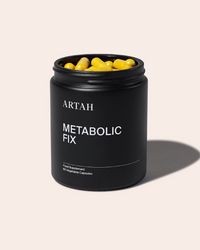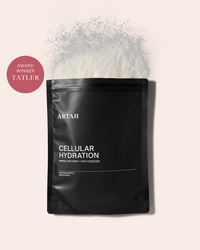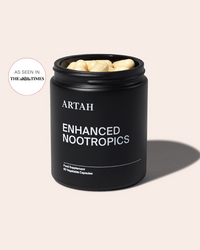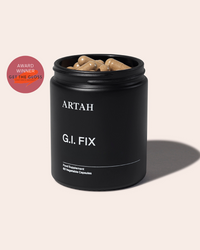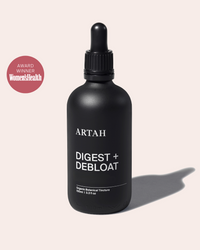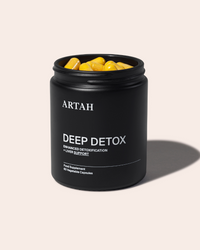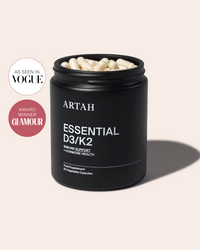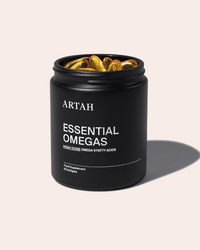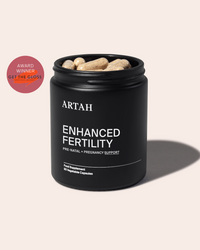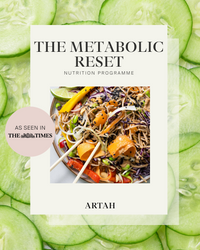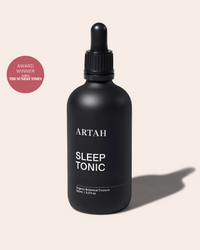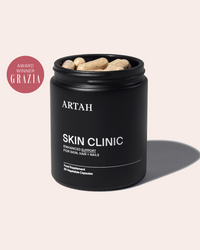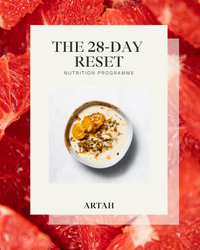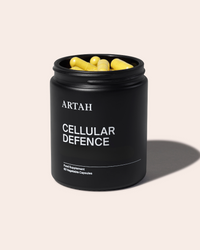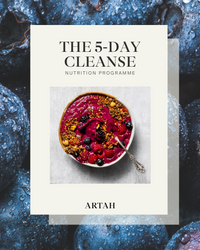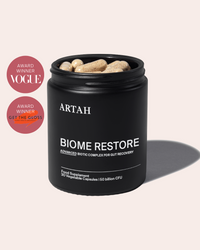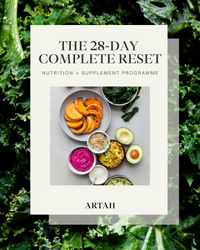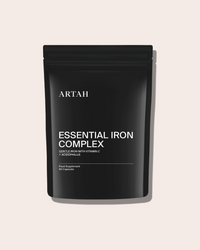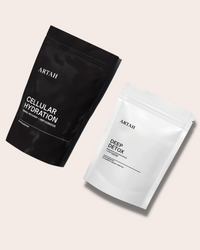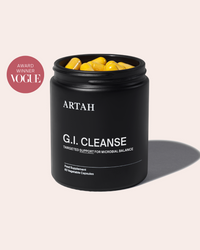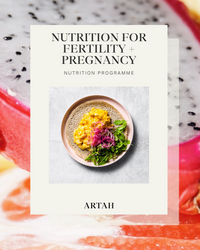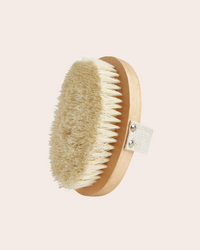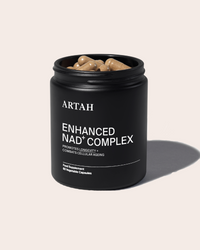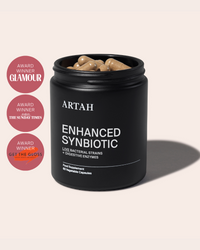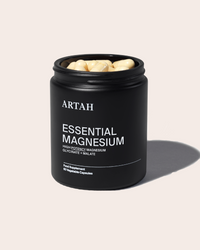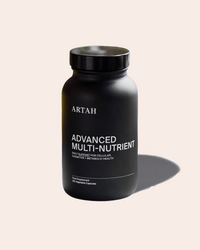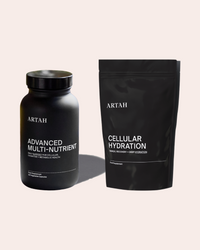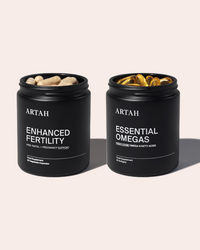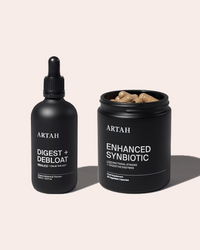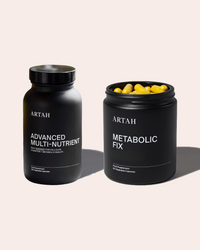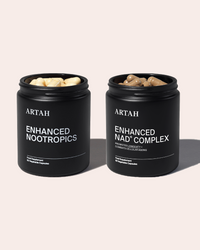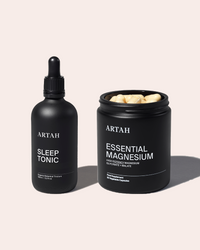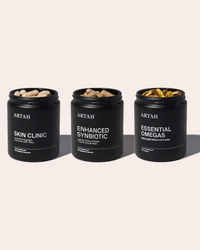Vitamins, Minerals, and Food For Mood: Our Guide To Support Your Mood
You’ve heard us say it before; what we eat has a profound impact on how we feel.
It governs our mood, our energy, and therefore how we interact with others. So, when it comes to lifting our mood via nutrition, it’s important to know the who’s who of mood support. Vitamins, minerals and phytonutrients are all involved in energy production and mood-related neurotransmitters (like serotonin, dopamine and norepinephrine), and essential fats are critical to cell membrane structure and function, so ensuring we get what we need to thrive can drastically improve our mood.
Here are the key players to be aware of:
THE ESSENTIALS
B5, B6, B12, folate
Why we love them: The B vitamins play an essential role in several processes in the body; they are important cofactors in energy production, macronutrient metabolism, and neurotransmitter function, which is why low energy and low mood can often go hand in hand. Like most nutrients, the B-vitamins work in synergy with one another and are often found in B vitamin complexes and their use has been studied extensively in relation to stress support, as well as reducing symptoms of anxiety and PMS.
Four B vitamins in particular play a key role in mood regulation - B5, B6, folate (B9) and B12, which are all needed in the production of neurotransmitters, in particular serotonin and norepinephrine, which help with mood regulation. Folate and B12 are also involved with the production of a chemical in the body called SAMe, which has been studied in relation to managing depression. Top tip: when supplementing with folate, look for the active or methylated version of folate (called methylfolate), rather than Folic Acid (a synthetic form) to ensure optimal absorption.
Eat this: B vitamins are abundant in green veg, whole grains, salmon, oysters/clams/mussels, grass fed beef, liver, chicken, turkey, legumes, nutritional yeast, and dairy. If you’re not eating animal products, supplementation with B12 is essential – our requirements can’t be met via a purely plant-based diet.
Take this: Enhanced Nootropics features the core b complex vitamins in their active form, including folate.
Magnesium
Why we love it: This powerful mineral is involved in over 400 reactions in the body. It’s essential for energy production and mood regulation, and it plays a key role in the central nervous system by maintaining optimal nerve and muscle function.
Stress is known to deplete our magnesium levels - adequate intake of magnesium has the power to calm down our nervous systems, aiding stress and anxiety management and lifting our moods.
Eat this: Dark green leafy vegetables, legumes, nuts, seeds, and whole grains. Pumpkin seeds and almonds have some of the highest magnesium content per g.
Take this: Cellular Hydration, an electrolyte powder rich in magnesium, which is especially helpful if you’re active. Enhanced Nootropics packs a powerful punch of magnesium glycinate as well.
Choline
Why we love it: Choline is an extremely important yet underrated nutrient - it was only officially recognised as an essential nutrient in 1998 and there is still no official RDA for it. Studies have suggested that upwards of 75% of people don’t get enough choline via their diets – in fact, some studies have shown that only about 10% of the population studied and and 8% of pregnant women currently meet their gender- and life-stage-specific adequate intake levels of choline. Choline is critical for the brain and nervous system; it’s required for the production of a neurotransmitter called acetylcholine, which helps regulates mood and memory. It’s also an important component of our cell membranes; we need it to maintain their integrity and function.
Eat this: Our livers synthesise a small amount of choline, but the rest needs to come from our diet - meat, eggs (the yolk specifically), poultry, fish, dairy, as well as cruciferous veg (cauliflower, broccoli, sprouts), potatoes and some nuts, seeds and beans are good sources. The highest food sources are of animal origin, so it’s worth considering a supplement for those on a plant based diet.
Take this: From the Artah suite, Deep Detox and Skin Clinic both contain choline.
Vitamin D
Why we love it: We’ve spoken in depth about Vitamin D and how important it is to every aspect of health; and our mood is no exception. To learn more about Vitamin D, check out our previous blog all about Vitamin D and its benefits. Low vitamin D levels have been associated with low immunity as well as anxiety, depression, neurodegenerative diseases such as dementia, as well as brain fog - vitamin D is needed in the brain for the synthesis of serotonin from the amino acid tryptophan.
Eat this: We don’t get adequate levels of vitamin D from our food, but it is found in small amounts in oily fish, liver, egg yolks and fortified foods.
Take this: Essential D3/K2. One capsule/day provides a powerful 4400 IU of vitamin D3 (the active form) in combination with vitamin K2. The combo of Vitamin D and K2 ensures that the calcium we get from food is deposited in the right place - the bones and not the arteries or soft tissues.
Omega 3 Fatty Acids
Why we love it: Omega-3 fatty acids - EPA (eicosapentaenoic acid) and DHA (docosahexaenoic acid) – are considered essential because of their role in so many aspects of our health, and they are pretty influential when it comes to our mood. They are integral to cellular structure; if our cell membranes are flexible and healthy, then our cells’ receptors will function more efficiently - particularly important when it comes to receptors for mood-boosting neurotransmitters. When we’re deficient, our membranes lose their structural integrity and communication can go array.
Omega 3 fatty acids are also known to reduce inflammation - specifically the action of inflammatory cytokines (a molecule that is secreted by immune cells), which improves how efficiently neurotransmitters function. Inflammation is linked to mood related issues like anxiety and depression; in fact, neuroinflammation is an exciting topic of research when it comes to anxiety and depressive disorders. They are also linked to improved cognitive function and focus, are linked to an improvement in hyperactivity, and are associated with lower rates of post-partum mood disorders like anxiety and depression.
Eat this: SMASH Fish - that’s salmon, mackerel, anchovies, sardines and herrings - look for wild, sustainably sourced fish. It’s also found in olive oil, chia seeds, avocados, nuts + seeds.
Take this: Essential Omegas - Our high dose marine omega is sustainability sourced from small wild fish + certified Friends of the Sea.
THE SUPPORT STAFF
Ashwagandha
Why we love it: Ashwagandha is one of our favourite adaptogens. If you haven’t heard of them, adaptogens are a class of medicinal herbs which have grown in popularity in recent years but have been used in traditional medicine for thousands of years. Adaptogens work to help us regain balance in our bodies by influencing how we adapt to stress, anxiety and fatigue, which is why they have been linked with improving our mental wellbeing. They can also help regulate hormone health through their effect on the HPA axis and cortisol, making them a great addition to your mood-supporting regime.
Take this: If you’re looking for a tincture or tea, you can find it – alongside other great adaptogens like Rhodiola, Schisandra, and Holy Basil – in our Stress Tonic, or in capsule form as a part of our Enhanced Nootropic.
5-HTP
Why we love it: 5-HTP is an important precursor and amino acid used in the production of serotonin. We’ve already seen how important serotonin is in relation to regulating mood, and 5-HTP has been shown to raise serotonin levels in the brain; it’s also been linked with improved sleep, a reduction of pain and less perceived feelings of anxiety.
Eat this: The body converts an amino acid called tryptophan into 5-HTP, and then into serotonin and melatonin. Tryptophan is found in poultry, milk, cheese, potatoes, seeds, and canned tuna.
Take this: Enhanced Nootropics has 5-HTP, helping bolster its calming properties. Word of warning, 5-HTP shouldn’t be taken alongside antidepressants such as SSRIs and MAOIs.
Probiotics
Why we love them: The importance of gut health should never be underestimated when it comes to lifting mood. The gut and brain are closely connected via the Vagus nerve and more importantly, upwards of 85% of serotonin is produced in the gut via our beneficial microbes. If our guts are functioning optimally, it can make a huge difference to our mental wellbeing.
Eat this: Probiotic rich food sources include probiotic yoghurts, kefir, kombucha, sauerkraut + prebiotic rich foods include cooked apples, oats + garlic. But, most importantly, plant diversity is key to a great microbiome. The goal is 40 different varieties of plant-based foods and herbs per week. This may sound like a lot, but it’s easier than you think. For example, porridge with mixed nuts, seeds, mixed berries and cinnamon can hit up to 10 varieties in just one meal.
Take this: In clinical studies, the probiotic strains Lactobacillus and Bifidobacterium have been shown to be most beneficial when it comes to mental health support in terms of reducing symptoms of anxiety, depression and for emotional wellbeing. These specific probiotic strains (Lactobacillus Rhamnosus, Lactobacillus Casei, L plantarum + Bifidobacterium Longum) can be found in, Enhanced Synbiotic.
Incorporating nutrients that specifically support the health of our cell membranes, as well providing our bodies with a sufficient supply of vitamins and minerals involved in the production of feel good neurotransmitters can have a huge impact on our mood and overall feelings of mental wellbeing - don’t forget that adding in adaptogens can help by increasing our resilience to stress.
And of course, a holistic approach is always preferred when it comes to optimisation – try to incorporate regular movement, get sufficient daylight and sleep, and implement stress management techniques. This article isn’t a substitution for medical advice, if you’re struggling with mood, it’s important that you seek professional support.

This article is for educational purposes only and the implementation of the theories and practices discussed is at the sole discretion of the individual. All advice given is not a substitute for medical advice, diagnosis, or treatment. If you have any concerns about your health, you should speak with your physician.










